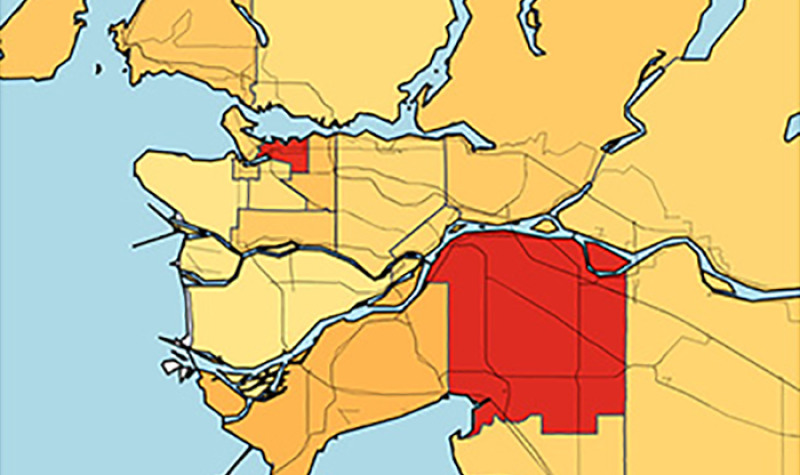By David P. Ball
---
Mathematician and data analyst Jens von Bergmann didn't expect he'd spend much of his pandemic having to find and assemble data about life-and-death COVID-19 questions in British Columbia, but here he is.
And after months of only learning about coronavirus cases emerging throughout the Downtown Eastside through reporters and non-profit agencies who chose to share the information, von Bergmann has analyzed months of government data and revealed the neighbourhood was the worst per-capita for several months of infections, before become second place to skyrocketing Surrey last month.
The Mountain Math co-founder and former University of Calgary and University of Notre Dame professor told The Pulse on CFRO that it is incomprehensible why the B.C. Centre for Disease Control refuses to release any such information to the public, or even he alleged to federal public health agencies. And when it comes to why the lowest-income neighbourhoods have been so hard-hit — the government insists because of social parties and gatherings — the employment and incomes of COVID-19 patients is something the province is keeping to itself.
That's not true in places like Ontario and parts of Europe, where it has been revealed that service industry workers, especially in hospitality and restaurants, are among the worst impacted, likewise those in food processing facilities.
But B.C. does release occasional bar graphs suggesting the settings in which it has documented where people caught COVID-19 — just not the data.
So von Bergmann showed his 10-year-old son how to use an online measurement ruler and went back over months of the transmission data to get the numbers the government refuses to release despite journalists' requests. He argues the province needs to rethink its lack of transparency as the pandemic's worse "second wave" if it wants to gain the public trust at a time when compliance with health advice becomes more life-and-death than ever.


